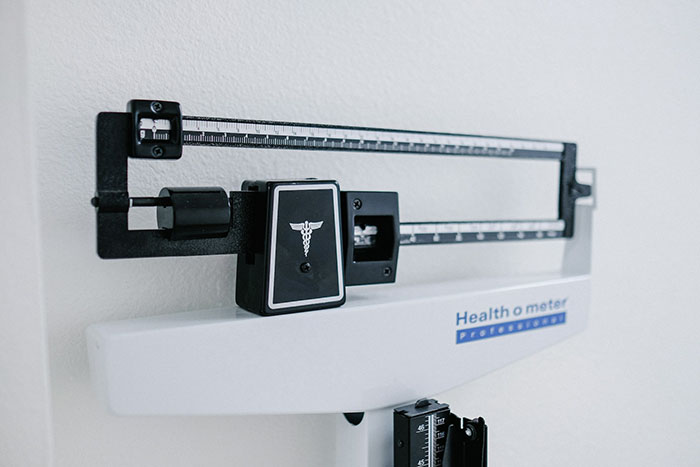By Madeline Lund
Ms. Lund is a high school student in Northern Virginia and volunteer with Mental Health Virginia.
Many adolescents have struggled to keep up with a society where diet culture and beauty standards are so heavily idolized. Romanticizing thinness in women is something that instills a dangerous message in girls from an early age, making them prone to disordered thinking and extreme insecurity when they are older. Along with many other girls, I have personal experience with these challenges, which is why I believe the general public should learn more about the dangers of diet culture and harsh beauty standards.
From age 7, I can recall being scrutinized for my body size and shape. At the time, I didn’t realize this wasn’t normal–that young children should not have to be thinking about this stuff–but nonetheless, I still experienced a feeling of worthlessness and self-hatred from being considered “fat” by my friends in elementary school. This soon became catastrophic, because at age 10 I began to develop disordered behaviors and an unhealthy relationship with food and exercise. This persisted and continued to worsen for about two years, until it got to the point where my heart rate was so low for a child my age that if I had continued to starve myself much longer I could have entered cardiac arrest.
You never initially say to yourself, “I have an eating disorder” but at this stage in my life I knew all I wanted was to look as sickly thin as I possibly could. I was soon admitted to the hospital and afterwards residential treatment for my eating disorder. This was something daunting to me as I was only 12 years old and one, had to be away from my family for nearly three months, and two, I had to face my biggest fear–eating. As I later progressed through levels of treatment I began to realize how much this illness had really stolen my childhood. I spent my time obsessively worrying about my looks and slowly letting my body and brain deteriorate instead of living freely and whimsically as a child should be able to.
Realizing how much happiness this took away from me, I became passionate about speaking out about eating disorders and destructive social expectations so that adolescents won’t grow up thinking their body needs to fit such unrealistic standards. Learning about coping strategies and eating disorders while I was in treatment made me notice how diet culture is present in high schools today. In my high school for example, there have been numerous occasions where my friends criticize their bodies and romanticize certain body types. This is a slippery slope because constant self-criticism like this can lead to depression, anxiety, or general low self esteem.
An example of people in my generation romanticizing specific body types is through popular social media comments such as commenting “bod” or “body is tea” both of which imply that someone’s body looks good and is adhering to the American beauty standard. Although these comments may appear harmless and are used in social media to compliment people, they still promote a message that it looks good to fit the beauty standard. This can be destructive because it is another way in which expectations for one’s body are being forced upon us.
According to the National Eating Disorder Association (NEDA) 22% of adolescents and children worldwide struggle with eating disorders, and every 52 minutes 1 person dies as a direct consequence of an eating disorder. I believe these numbers can be lowered if the media and general public reshape the message we instill in children about beauty and body standards. A way this could be done is using models with various body types, rather than just ones who fit the “tall and thin” standard of models. Another way is teaching young children about empathy and acceptance of all body types, so they don’t grow up living with the idea that it’s ideal to have a certain body size or shape, or so they don’t become someone who scrutinizes other children for the way their bodies look.
Reshaping our messaging to children could include shifting the ways in which we assign meaning to certain body types, such as no longer associating “fat” with being a bad quality and “skinny” as being a good quality. In reality, being too underweight can be just as dangerous as being too overweight as exemplified in my story where being underweight could have resulted in fatal heart problems.
Furthermore, we need to break the pattern of normalizing dieting. A prime example is social media creating trends like “what I eat in a day” or showing videos of what supermodels must consume or not consume in order to look the way they do. These types of posts deliver messages that reduce the confidence of many people and make them feel as though they need to begin losing weight or dieting. Too often this media essentially romanticizes the idea of an eating disorder–whether they mean to or not–which can result in disastrous damage to the minds of anyone, but particularly adolescents whose minds are still developing and susceptible to feeling this type of pressure.
No one should be proud of trying to be as skinny as possible or eating as little as they can or exercising compulsively until they feel like they are going to pass out. This is something the media has pushed on us for decades and it is something we must continue to stand up against.
Restricting food or trying to lose weight when you don’t need to will not make you happier, it will make you miserable, unhappy, and take away your freedom to live happily and be content with your life. For anyone struggling, I offer hope and support and want to remind you that life is so much better and happier when you are free from the eating disorder. Life is way too short to worry so much about what we eat and the way we look, so as I like to say, “eat the fries!”
Supportive resources:
https://www.nationaleatingdisorders.org/get-help/
https://anad.org/ ANAD is the leading nonprofit in the U.S. that provides free, peer support services to anyone struggling with an eating disorder




